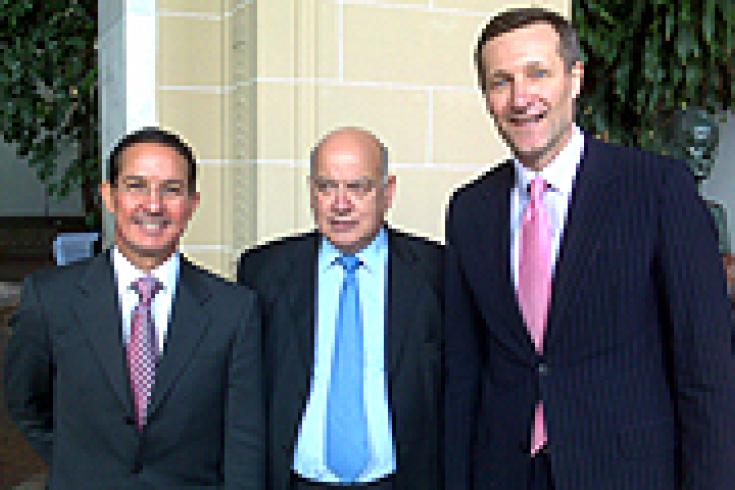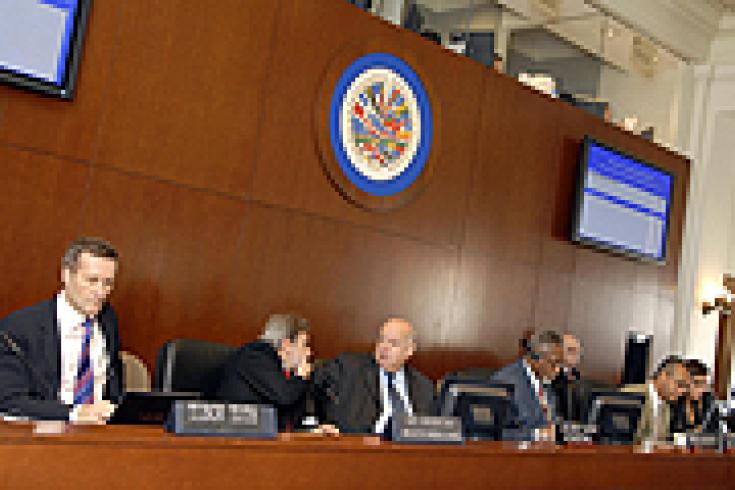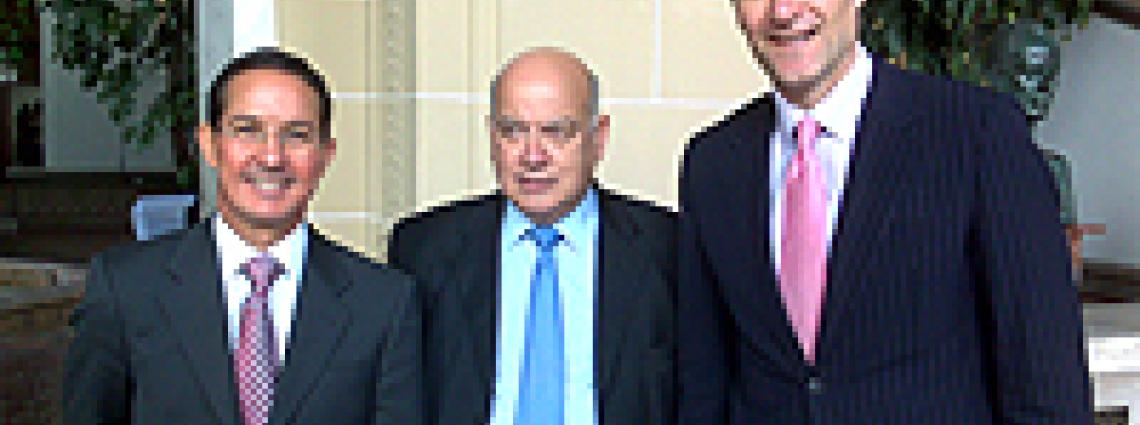Countries in the Americas that have not yet signed and ratified the CTBT are encouraged to do so
A special meeting took place on 7 February 2008 in the Committee on Hemispheric Security at the Organization of American States (OAS) in Washington D.C., U.S.A. Its purpose was two-fold: to consolidate the nuclear-weapon-free zone established in Latin America and the Caribbean through the 1967 Treaty of Tlatelolco; and to promote the full force and effect of the 1996 Comprehensive Nuclear-Test-Ban Treaty (CTBT).
The meeting took place only one week after Colombia announced its ratification of the CTBT. Colombia's ratification was of particular importance since it belongs to the group of countries that must ratify the Treaty in order for it to take effect. With Colombia's ratification, all States in the OAS region whose ratifications are required for entry into force have ratified the Treaty, with the single exception of the United States.

CTBTO Executive Secretary Tibor Tóth (far right) thanked Colombia's Minister of Foreign Affairs, Fernando Araùjo (far left) for Columbia's recent ratification of the CTBT. In the centre, the Secretary General of the OAS, Josè Miguel Insulza.
Many participants emphasized the significance of all OAS members' ratifying the CTBT. Chairperson Ambassador Izben Williams of St Kitts and Nevis quoted OAS Secretary General Insulza and called on all OAS members to ratify the CTBT. Mexico encouraged "all countries in the region that have not yet done so to ratify the Treaty."
Of the 35 OAS members, 31 have signed the CTBT and 29 have ratified it. Besides the United States, only Guatemala has yet to ratify the Treaty, whereas four countries-Cuba, Dominica, St Vincent and the Grenadines, and Trinidad and Tobago-have yet to both sign and ratify it.
CTBTO Executive Secretary Tibor Tóth urged all countries in Latin America and the Caribbean to support the CTBT and its verification regime, reminding them that "the CTBT serves as an important catalyst in many nuclear disarmament processes and proposals." Here, Tóth referred to the ongoing review process for the Nuclear Non-Proliferation Treaty and current discussions in the Nuclear Suppliers' Group, as well as to proposals put forward by the Weapons of Mass Destruction Commission chaired by Hans Blix. He also referred to the op-ed entitled "Towards a Nuclear-Weapon-Free World" by former US foreign and defense policy leaders George Shultz, William Perry, Henry Kissinger and Sam Nunn, published on January 15, 2008 in The Wall Street Journal. "The next years will be the most defining years for the [CTBT], Tóth said: "That is why we need your support politically, economically and scientifically."
Almost all speakers at the OAS meeting emphasized the strong support for nuclear disarmament and non-proliferation among the countries of Latin America and the Caribbean. Their pioneering unity of purpose is symbolized by the historical Treaty of Tlatelolco, which created the world's first regional nuclear-weapon-free zone over 40 years ago, in 1967.
"By establishing the world's first zone free of nuclear weapons in a densely populated area, the Treaty of Tlatelolco set an important precedent in devaluing the role of nuclear weapons-thereby contributing to regional peace and security and ensuring that Latin America and the Caribbean remain free of nuclear weapons," OAS Assistant Secretary-General Albert Ramdin emphasized. "The historic effort of Latin America and the Caribbean to achieve full implementation of the Tlatelolco Treaty should serve as an important model for other regions with a growing interest in attaining similar goals."
CTBT was a natural part of this fabric, reaffirming the prohibition on testing already enshrined in the Treaty of Tlatelolco. "The CTBT represents an important instrument for ensuring the cessation of nuclear-weapon test explosions or any other nuclear explosions, and constitutes an effective nuclear disarmament and nonproliferation measure", Ramdin said.

Panelists at the OAS meeting. (Photo taken by Juan Manuel Herrera - OAS/OEA)
